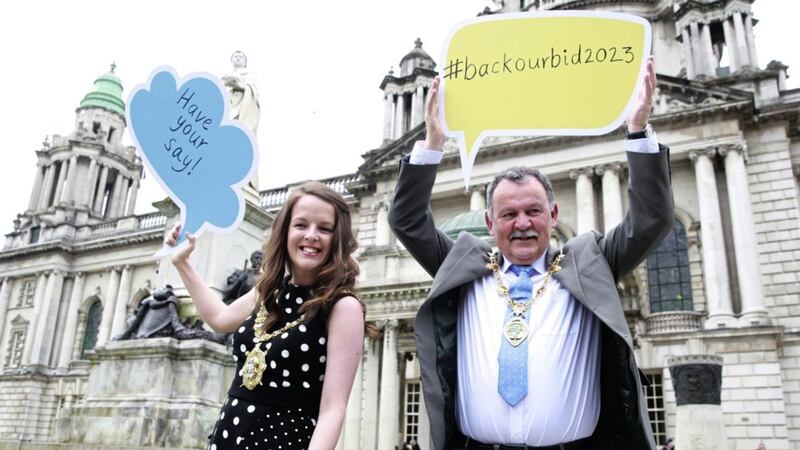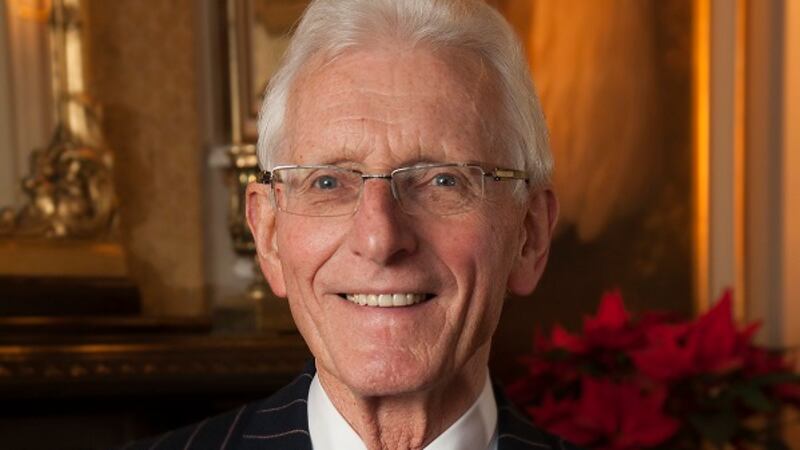NOW that Stormont is in permanent cold storage or certainly a period of hibernation where does political authority and responsibility lie? James Brokenshire has not yet pressed the full direct rule button so when it comes to central Government authority we are in a halfway house. No devolved ministers, but only the civil service in their place whose authority to enact Government policy is drawn only from the pre decided priorities of the last set of ministers. With each passing month that authority is stretched a little bit more and in that process ends with Permanent Secretaries simply minding the shop until a new political dispensation, of whatever hue, is put in place.
Focus naturally turns to local Government and whether any new policy initiatives can emanate from that source and in the last couple of weeks Belfast had enjoyed mixed fortunes. Firstly the news that the UK cities which had been vying to be shortlisted for the European Capital of Culture 2023 were deemed to be ineligible, a direct result of Brexit. That was a kick in the teeth, not only for the joint Derry / Strabane and Belfast bid but of course for all the UK cities who had prepared bids, worked on their submissions and come up with the proposed content which hopefully showed the potential of each location. It seems odd that the question of eligibility only comes up at this juncture rather than at the start of the process and indeed it appears that the question was asked and answered positively before the bid was prepared. Hopefully the ideas which underpinned the Belfast submission remain live and on the agenda. A lot of work went into the initial submission and the rationale and content was exciting relevant and historically significant. The councils, with the support of a restored Executive in the future, should still seek to roll out as much of the content as they can even without the EU label. The advantages can still accrue.
Our capital city enjoyed better fortunes in the UK budget (the EU take away, Treasury giveth. Maybe Brexiteers were right all along?) when the Philip Hammond signalled the beginning of a conversation on a ‘city deal’ for Belfast. The response of our colleagues in the north west was to cry foul, even though the record shows that only the former Foyle MP Mark Durkan had truly led on the campaign for a city deal for Derry. Other local politicians appear to actively shunned the idea, finding reasons why a city deal was not a priority for Derry or indeed any part of Northern Ireland, until of course it was denied them. But even that has been apparently been corrected now with the concession won this week by Colum Eastwood from the Secretary of State, which paves the way for not one, but two city deals for Northern Ireland in the near future.
City deals, while still a relatively new phenomenon, have had a marked impact in parts of England and in Scotland. They involve a combination of mental Government funds, local authority investment and private sector input, but crucially that cocktail does amount to new money and a chance to undertake new policy initiatives, which would perhaps be beyond the scope of a council acting alone. The Derry wishlist has been known for sometime and includes an upgrade of the university campus at Magee and major road and rail improvements.
There are a variety of options open for Belfast to pursue as part of a city deal. We are not short on ways in which our offer to businesses, tourists and city dwellers could be enhanced. A dedicated infrastructure fund aimed at linking all parts of the city with the new Rapid Transport system would be welcome. As currently proposed that plan will connect Dundonald to Dunmurry, but leaves out Ormeau and Oldpark. A city deal should include planning for a second phase to include routes into north Belfast and south Belfast, meaning the entire city is connected.
Belfast still needs more people living in the city centre. Look upwards on any street and you’ll see floors and floors of empty buildings, all of which could be converted. A city deal could include incentives and grant schemes to transform these buildings into offices and homes.
As in Derry we should use a city deal to ring fence funding aimed at sector specific learning. Why can't Belfast become a global hub for cyber security learning and delivery? We have shown we have the inherent skills so lets foster them even further. We want to attract national and international expertise to Belfast, to support the creation of spin-off companies who can export products and services across the globe.
Belfast City Council in particular has shown leadership and energy at a time when politics regionally has failed to deliver either of those components. We can expect the management and senior team to recover quickly from the 2023 setback and make progress on what is on offer as 2017 draws to a close. That’s what positive organisations do.








